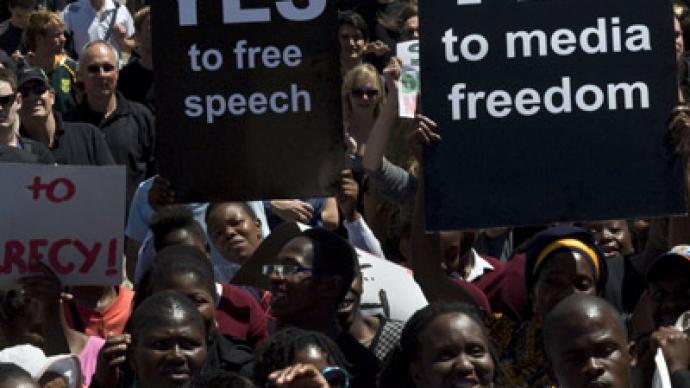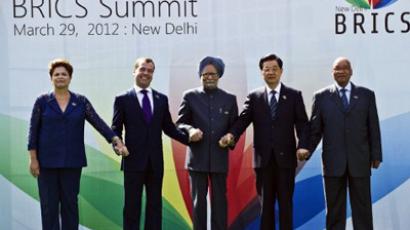S. Africa ‘secrecy bill’ puts continent’s press freedom at risk

South Africa is in uproar over possible amendments to a “secrecy bill” decried as reminiscent of apartheid press repression. The draft legislation effectively gags whistleblowers, provoking fears of a knock-on effect across Africa if it is made law.
Put forward by South Africa’s ruling African National Congress (ANC) last November, the bill stipulates jail sentences of up to 25 years for journalists or whistleblowers that possess or disseminate state secrets.Since its appearance on the political landscape, the proposed bill has come under fire from politicians and activists alike who see it as a move to put a gag on investigative journalism.The criticism has forced the ANC to propose a set of amendments in a briefing on Wednesday. The changes include altering Section 43 of the bill which concerns the criminalization of revealing classified information. It provides for an exemption to prosecution if the information disseminated uncovers criminal activity.This would enable those accused under the bill to argue that the information was improperly classified in the first place. The ANC has also said it is prepared to amend Section 49 so it criminalizes the spread of information only relating to state security matters.The acting Director General of State Security Dennis Dlomo however rejects the changes."The last point on this is really simple. What if a whistleblower gives away top secret, legitimately classified information?" said Dlomo earlier. He added that proposals to amend the bill would be looked at in detail, but resolved to stay true to the bill’s essential purpose.Dlomo’s unwillingness to compromise was greeted by furor on the political stage, with left-wing party Congress of the People (COPE) condemning his approach.“Today Mr. Dlomo showed his arrogance and rubbished all the proposed amendments including those of the ANC,” said COPE MP Dennis Bloem on Wednesday.Opposition parties have called for a longer list of exceptions to the legislation. They want it to encompass classified data alluding to health threats, management and administrative error.
Knock-on effect
South Africa is widely regarded as having one of the freest presses on the continent, but critics of the bill believe it seriously threatens progress that has been made over the past 18 years since the end of the apartheid. Critics worry that if the bill is made law in South Africa it will have a knock-on effect in the rest of the continent, putting freedom of speech at further risk. "This year we did find a slight decline in the overall level of press freedom on the continent," said Karin Karlekar, director of the Freedom of the Press 2012 project. "This occurred for several reasons [including] the reaction to the Arab Spring uprisings. News reports of the uprisings were restricted in Zimbabwe and Ethiopia, for example."Nobel Prize-winning South African author Nadine Gordimer, whose books were banned during the white minority government, said the bill is “totally against all ideas of freedom.”"ANC is taking South Africa back to the suppression of the free expression of apartheid," she said last November, when the draft bill was presented.














